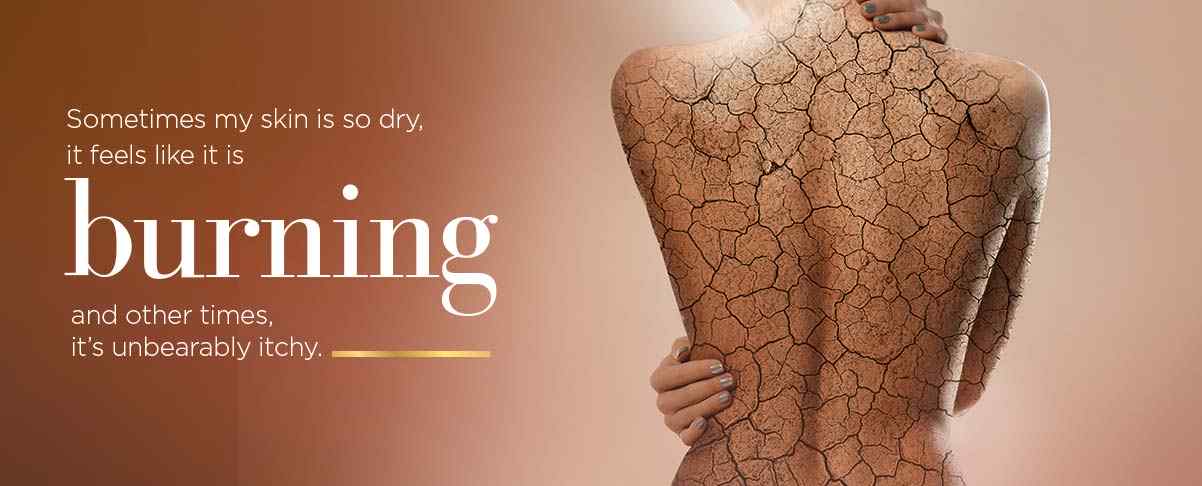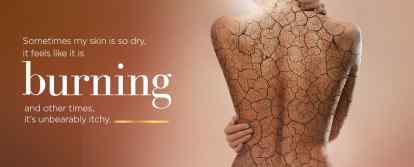Treatment of psoriasis using Low Dose Naltrexone and Vitamin B12

Your skin is the largest organ of the human body, and some would say one of the most functional and important. However, your skin is also what you present to the world and very much a part of your everyday interactions. Therefore, when you have a skin disease like psoriasis, which can affect the appearance of your skin on various parts of your body, the effects on your life can be detrimental. Not to mention, psoriasis is linked to a number of health concerns, including heart disease and joint pain.
The American Academy of Dermatology Association says that psoriasis is one of the most common skin diseases among people in the United States with an estimated 7.5 million who have the condition. Even though psoriasis can occur among people of all ages, the highest rate affects adults between the ages of 45 and 64. The cost of treatment associated with psoriasis is astounding, with as much as $63.2 billion spent on treatment annually.
Psoriasis is a skin disease characterized by the rapid multiplication of skin cells. An individual with psoriasis can have skin cells that multiply at a rate up to 10 times faster than usual. This over-generation of skin cells causes patches of scaly, bumpy skin that can show up in multiple places on the body. However, psoriasis tends to show up as:
-
Scalp Psoriasis
-
Facial Psoriasis
-
Genital Psoriasis
-
Psoriasis on Knees, Elbows, or Lower Back
-
Psoriasis on Hands, Nails, or Feet
Usually, a psoriasis flareup will start out as a bumpy red rash. The rash will often progress until the bumps are larger and thicker, and then white scales of flaky skin form on the top of the irritated area. With psoriasis, your skin can be especially delicate and prone to bleeding in the affected area. Many people also have issues with itching, burning, and other discomforts during a flareup.
The majority of people with psoriasis will experience flareups or cycles; they may have problems with their skin for a few weeks or longer, and then the flareup seems to get better. While psoriasis can be concentrated in one area, many people diagnosed will have problem areas in different places on their body. For example, an individual with plaque psoriasis may have issues around their hairline at times, but may also experience psoriasis on their feet or nail psoriasis as well.
While all types of psoriasis can have similarities, each form is also a bit unique in how it presents on the skin. Some of the most common types of psoriasis include:
Plaque Psoriasis - Accounts for 80 to 90 percent of instances. Appears as rough, red patches usually covered by scales or "plaques."
Guttate psoriasis - Accounts for 8 percent of people with psoriasis. Appears as small, teardrop-shaped spots of scaly redness; usually more prevalent in younger adults or children.
Pustular Psoriasis - Accounts for 3 percent of instances. Characterized by painful, pus-filled bumps that are surrounded by further irritated skin; most prevalent in older adults.
Inverse Psoriasis - Appears near skin folds, such as in the armpits or under breasts. Roughly 25 percent of individuals diagnoses with psoriasis develop this form of the condition.
Erythrodermic Psoriasis - Only affects around 2 percent of people. The most severe form of psoriasis and can sometimes be life-threatening. Usually characterized by intensely painful rash across large portions of the body.
Even though the exact cause of the disease is not known, most researchers do agree that environmental factors and possibly genetics could be at play. Psoriasis is considered to be an autoimmune disease because regardless of what type of psoriasis an individual has, the underlying mechanics are related to immune system malfunctions.
Individuals with psoriasis, whether that is plaque psoriasis or otherwise, have heightened levels of pro-inflammatory proteins in their blood. These proteins cause the immune system responses that cause inflammation and other skin issues.
One important thing to note about psoriasis, flareups can oftentimes be triggered by both inward and outward events. It is not uncommon for an individual to seem to be in remission for months or even years, experience some kind of trigger, and see their issues rapidly escalate. Some of the known triggers include:
-
Stress
-
Skin injuries, such as cuts or sunburn
-
Certain prescription medications, such as antimalarial drugs or high blood pressure medication
-
Dry weather
-
Infections
-
Exposure to secondhand smoke
-
Consuming large amounts of alcohol
Even though pretty much anyone can develop psoriasis, psoriasis does seem to show up more if you have parents with the condition. High levels of stress and being a smoker can also increase the risk of developing psoriasis later in life.
Unfortunately, the current treatments for psoriasis are not totally effective. Further, many types of treatment for psoriasis are so laden with side effects that an individual may not be able to tolerate the treatment. Most medicinal treatments are aimed at slowing the production of skin cells or helping to soothe the symptoms of psoriasis at the skin level.
Topical Psoriasis Medication
Ointments, lotions, salves, and creams formulated with certain medications are typically the first line of treatment after someone is diagnosed with psoriasis. Unfortunately, even topical medications come along with side effects, such as heightened risks of skin cancer and increased sensitivity to light. Some topical psoriasis medication examples include:
-
Topical corticosteroids
-
Salves containing coal tar
-
Vitamin D analogues
-
Retinoid-based skin creams
Oral or Injected Psoriasis Medication
Only 1 in 5 people will be able to control flareups with prescribed medications. Many of these systematic medications are associated with severe side effects, so they are often only prescribed for short periods of time. Some of those medications include:
-
Retinoids
-
Steroids
-
Thioguanine
-
Apremilast
-
Methotrexate
Immunological Psoriasis Treatment
Immunologic treatment for psoriasis involves forcing the immune system to stop reacting as it normally does. While these immunosuppression treatments can be effective, the effects are usually short-lived. Research has shown that when inflammatory pathways are blocked with these medications, the immune system finds workarounds over time. Unfortunately, this action can also increase inflammatory pathways and make problems worse in other areas of the body.
As an adage, immunosuppression drugs can come along with some pretty severe side effects. Plus, their use can suppress more important immune system functions that help your body fight off serious infections or illnesses. Immunologic psoriasis treatment can also be extremely expensive, sometimes greater than $5,000 monthly.
Recently, more efforts have been taken to examine alternative treatment options for psoriasis because typical medications don't offer a long-term solution and come along with unfavorable side effects. Vitamin B12 and low dose naltrexone (LDN) are good examples of treatments that have been gaining ground as a viable way to truly help someone with psoriasis, even those with some of the most severe cases of the disease.
Why Vitamin B12
Topically applied vitamin B12 may help deter some of the symptoms associated with psoriasis. People with psoriasis often have reduced levels of folic acid metabolites, as well as vitamin B12. Further, levels of homocysteine, a byproduct created through the breakdown of amino acids, are often higher in people with psoriasis. Vitamin B12 and folic acid are both utilized to break down homocysteine. Therefore, supplementing vitamin B12 may help to reduce some of the inflammatory symptoms.
Why LDN
Low-dose naltrexone has been found useful in a variety of different treatments. The antagonist works by blocking opioid receptors in the brain, which is why it is primarily known for the treatment of opioid overdose or abuse. Nevertheless, this very action on a smaller scale may also help moderate the immune system response.
Even though scientific research into LDN and vitamin B12 for psoriasis is just beginning, the initial results have been promising. As an adage, at Harbor Compounding Pharmacy, we have witnessed firsthand positive results with our patients using this alternative treatment for psoriasis.
A case series published in 2015 found that treatment with a formula containing B12, vitamin A, olive oil, cocoa butter, and tea tree oil yielded greater than 75 percent reduction of symptoms in 12 weeks. A randomized controlled trial found in 2017 that vitamin B12 ointment offered significant improvements for patients in the trial with plaque psoriasis.
As for low dose naltrexone, a few studies have also found promising results. In 2007, researchers found that LDN topical ointment reduced chronic itching—often associated with psoriasis—for 70 percent of study participants. In 2018, researchers took the initiative to specifically examine the effectiveness of LDN for plaque psoriasis for a female patient with plaques covering 10 percent of her body. At three months, her symptoms had improved significantly; at six months, plaque coverage had reduced to only 1 percent.
A clinical case covered in 2019 showed a 38-year-old female diagnosed with erythrodermic psoriasis also found some relief with LDN treatment when other medications had proven ineffective. After just 10 days of treatment, the patient showed "significant improvement," facial swelling began to subside, and itchiness reduced. After 20 days, the patient showed complete improvement. At both three and six months after starting LDN treatment, the patient showed complete psoriasis remission.
When you understand the underlying functions of a disease, you are better equipped to find a proper agent that can help. At Harbor Compounding Pharmacy, we strive to use the latest research to offer psoriasis medication alternatives that may be more effective. If you would like to know more about LDN and Vitamin B12 for psoriasis, please reach out to one of our pharmacists. We can help you determine if an alternative solution we have available may work for you, and even help you request a prescription from your doctor.



